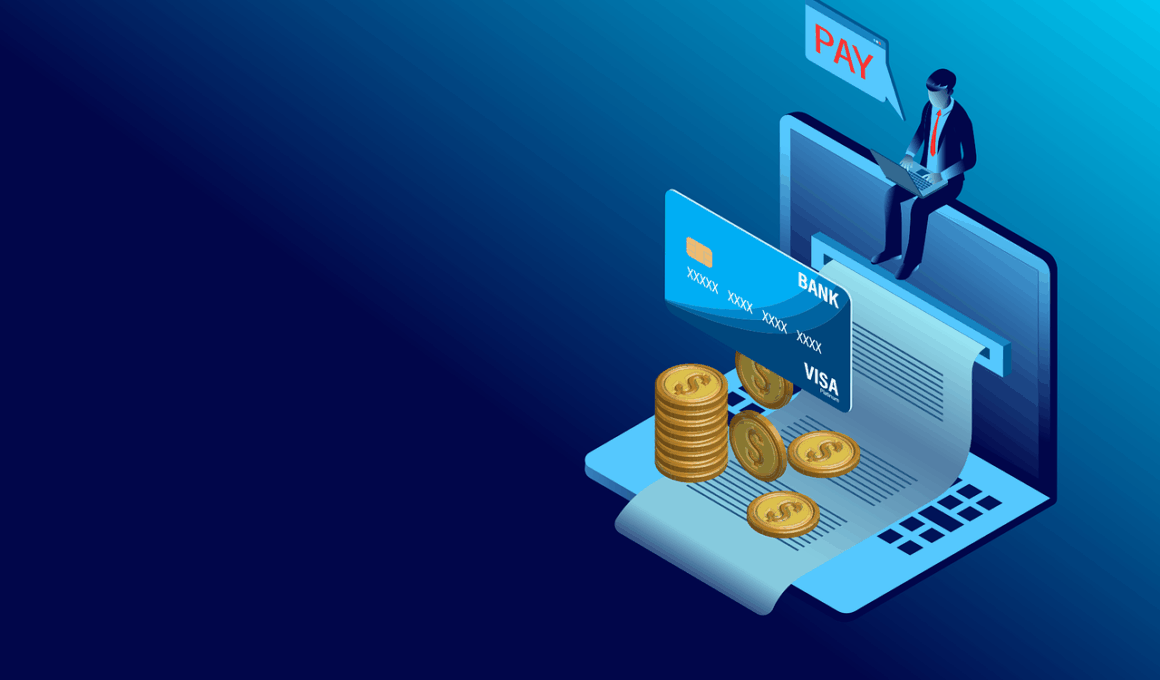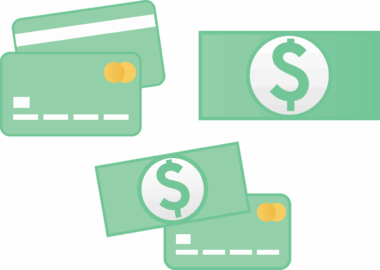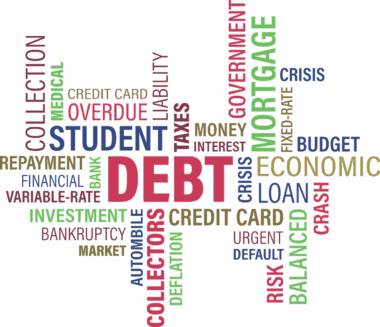The Importance of Budgeting for Debt Consolidation Planning
When planning for debt consolidation, budgeting plays a crucial role in effectively managing your finances. A well-structured budget can help you track your income and expenses and balance everything to ensure you aren’t overspending. This discipline can assist in discovering extra funds to funnel into your debt repayments each month. In fact, creating a budget shouldn’t be a daunting task; instead, it should become a process of understanding your financial habits and altering them where necessary. With the right approach, budgeting can empower you to take control of your financial future while reducing debt efficiently. The goal is to create a budget plan that suits your needs and allows you to hold yourself accountable. Consider breaking down expenses into categories, setting specific goals and regularly reviewing your financial health. As you do this, remember that it’s essential to cultivate spending awareness, which will make it easier to resist temptations. Your budgeting journey can easily lead to significant strides in debt elimination, allowing you to regain confidence and move towards achieving other financial goals. Remember, knowledge paired with action makes all the difference.
Additionally, evaluating your fixed and variable expenses will help you identify areas where adjustment is necessary. Fixed expenses include rent or mortgage payments, and these often cannot be changed easily. However, variable expenses, like dining out or entertainment, offer more maneuverability. Pinpointing these areas lets you strategize changes that yield additional funds for debt reduction. Eliminating unnecessary expenses opens opportunities to save more on a monthly basis. This not only augments your budget but aids in debt consolidation efforts as it reinforces the importance of discipline in spending. You could also consider prioritizing your debts, focusing first on those with the highest interest rates; this can save you money over time. Employing debt snowball or avalanche methods can effectively expedite the repayment process as well. Remember to establish realistic spending habits that enhance your ability to maintain a healthy budget while remaining determined to achieve financial freedom. Acknowledging your progress is crucial, as even small victories epitomize steps towards conquering larger debts. Empower yourself by tracking your accomplishments and fostering positive financial habits for sustained success.
Tools and Resources for Effective Budgeting
To bolster your budgeting mission, several tools and resources can greatly streamline the process. Many budgeting apps are available on mobile platforms that allow you to monitor spending, set financial goals, and visualize your progress in real-time. Utilization of digital spreadsheets can also provide a straightforward way to record your financial activities while enabling efficient updates when expenses change. These tools are instrumental in ensuring you adhere to your budget, ultimately aiding in debt reduction. You may even choose to follow online courses or workshops aimed detailed guidance on financial literacy principles. Connecting with a personal finance coach or attending community seminars can yield valuable insights and foster a network of support. Engaging with others who share similar goals provides motivation and accountability to your quest for debt freedom. Remember, being informed is empowering, so invest time in learning about budgeting techniques and personal finance strategies. You will find numerous blogs and podcasts focusing on these subjects, which you can incorporate into your daily routine to build sustainable financial practices and gain confidence over your budget.
Another important aspect of budgeting is consistent tracking of your financial behavior. Keeping a detailed account of all transactions allows you to identify patterns in spending and ascertain areas needing improvement. For instance, regularly reviewing monthly statements can reveal overspending in areas such as dining out or entertainment. Implementing strategies like the 50/30/20 rule can help you allocate income appropriately; 50% for needs, 30% for wants, and 20% for savings and debt repayment. Adhering to this guideline helps streamline your financial flow and encourages disciplined spending habits that align with your budgeting objectives. Furthermore, setting periodic financial check-ins can motivate you to stay on track toward your debt reduction goals. It’s vital to engage with your budget consistently; this ensures you remain aware of your financial standing and empowers positive decision-making. Establish rewards for yourself when reaching certain milestones to help maintain inspiration and accountability throughout your budgeting adventure. Ultimately, a robust budgeting strategy creates a pathway to growing financial health and subsequently yields advantageous results for debt management.
Overcoming Challenges in Budgeting
Though budgeting can provide a clear path for achieving financial goals, it does not come without its challenges. Common barriers include unexpected expenses, difficulty maintaining discipline, and the emotional strain associated with money management. Budgeting requires patience and resilience, and it’s essential to prepare ahead for anticipated variances in income or unforeseen costs. Establishing an emergency fund can serve as a cushion, minimizing the impact of these financial hiccups on your overall budget. It’s vital to maintain a positive mindset throughout your budgeting journey, recognizing that temporary setbacks are typical; with consistency, a well-structured approach can yield long-term success. To further improve budgeting resilience, consider discussing financial hurdles with a trusted friend or a financial advisor. Celebrating small achievements along your budgeting journey reinforces a sense of accomplishment and motivation. Continuing to learn and adapt is vital in overcoming any challenges or arising pitfalls. With determination and careful planning, you can successfully navigate the complexities of financial management while continuously working towards your goal of debt reduction.
Before reaching out to creditors, do thorough research and outline your options when considering debt consolidation. This step involves understanding your current debts, interest rates, and overall financial standing. Recognizing the implications of various debt consolidation methods is crucial in ensuring you make informed decisions. Look into methods such as taking out a personal loan, using a home equity line of credit, or engaging with non-profit credit counseling services. Each option has unique pros and cons, and exploring them equips you with knowledge, enabling effective conversations with lenders. Be attuned to the fees and potential penalties that may arise from consolidating debts, as they can impact your overall financial status. It’s vital to remain proactive while implementing the newly structured budget, ensuring allocations align with your goals of debt elimination efficiently. An active approach to managing your payments and staying in touch with creditors fosters stronger working relationships, leading to beneficial negotiation opportunities. Remaining informed about your options offers peace of mind as you pursue your objective towards debt reduction and financial stability.
Long-Term Benefits of Budgeting and Debt Reduction
Promoting sustainable budgeting and diligent debt reduction practices paves the way for long-term financial stability and prosperity. As you gain a firm grasp of your budget, the likelihood of accumulating more debt diminishes, empowering you to prioritize savings and investment opportunities. Improved financial literacy fosters confidence that manifests in various facets of your life. Allocating funds toward essential goals—like purchasing a home or saving for retirement—becomes attainable when you adhere to the established budget. As debts diminish, your credit score inevitably improves, enhancing your ability to secure favorable interest rates on loans and credit cards. This positive trajectory reinforces self-discipline and a deep understanding of your financial behaviors. Over time, those habits translate to a richer life experience, marked by reduced stress and enhanced financial opportunities. The collective impact of budgeting and debt reduction practices culminates in achieving greater peace of mind. Remember, successful financial management relies on mindful habits and continuous progress towards your goals. Make budgeting a priority in your life; it will ultimately reward you with financial freedom.
Adopting a positive financial mindset ensures that you stay inspired throughout your budgeting and debt reduction efforts. Cultivating patience and resilience in the face of challenges prevents setbacks from derailing your progress. Embrace this journey as an opportunity for personal growth, and remain open to learning from each experience. Interactive workshops or online courses can serve as valuable tools for enhancing your financial acumen while simultaneously building a supportive community. Surrounding yourself with like-minded individuals fosters encouragement and motivation along the way. Remember, progress may be slow at times, but persistence is key. Maintaining an open dialogue with family or friends concerning your financial plans may verify motivation and provide support while journeying towards financial freedom. Celebrate milestones together and recognize the victories—no matter how small they may be. This sense of community can serve to bolster your resolve and help keep your spirits high throughout the journey. Ultimately, by integrating consistent budgeting practices and effective debt reduction strategies, you can prioritize your financial health, yielding rewards that echo throughout every aspect of your life.





